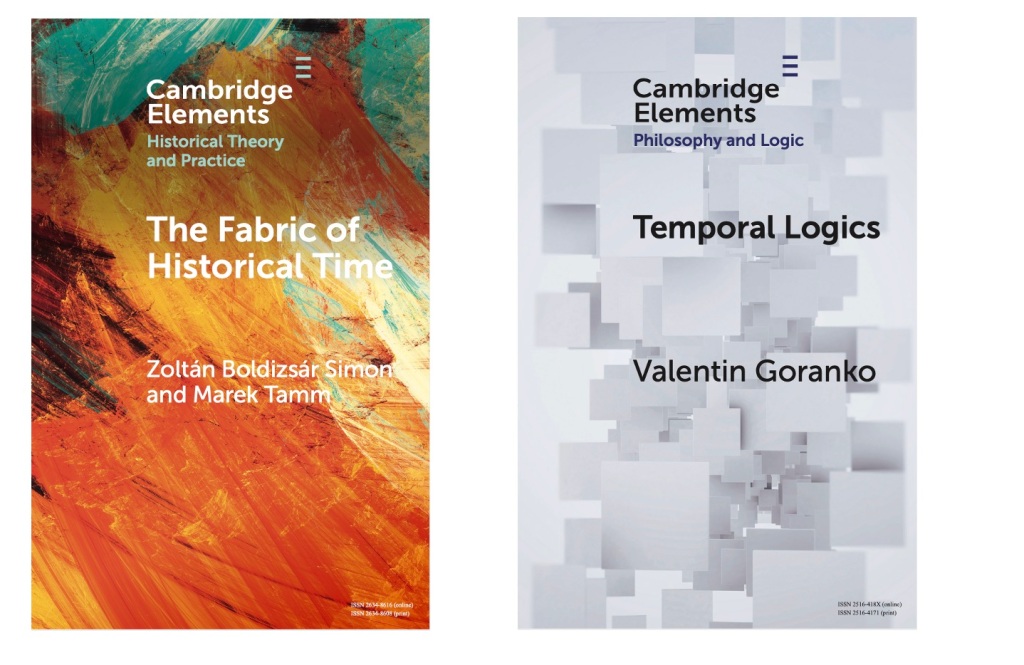Last year (2023), Tom Mason and I published a paper in Journal of the Association for Information Science and Technology on “Times New Plural – The multiple temporalities of contemporary life and the infosphere”. The open access paper is here, and a shortened ‘translation’ in Information Matters is here. In this paper, we examined experiences of time and temporalities in contemporary life, emphasising the effects of instantaneous communication and digital information, and basing the analysis on Luciano Floridi’s conception of the infosphere. We considered the informational spaces of Floridi’s hyperhistorical time, with informational activities expressed in linear, cyclic, re-cyclic, and iterative processes, and suggested an outline model for ‘time literacy’ to help understand and deal with these complexities.
Although we did not claim the literature review to be comprehensive, we tried to include as many significant viewpoints as possible. As always seems to be the way, shortly after the publication of our paper, new and relevant things emerged.
Two of these take the form of Cambridge Elements, which the publisher, Cambridge University Press, describes as “an innovative concept in academic publishing [combining] the best features of books and journals … original, succinct, authoritative, and peer-reviewed scholarly and scientific research”. They do seem a very useful format, a kind of long-form academic article. They are organised into subject series, but managed nonetheless to provide interdisciplinary approaches.

One recent Element, in the Historical Theory and Practice series, authored by Zoltán Boldizsár Simon and Marek Tamm deals with The Fabric of Historical Time. This “sketches a theory of historical time as based on a distinction between temporality and historicity…. approaches the fabric of historical time as varying relational arrangements and interactions of multiple temporalities and historicities … pays special attention to the more-than-human temporalities of the Anthropocene, the technology-fueled historicities of runaway changes, and the conflicts in the fabric of historical time at the intersections of technological, ecological, and social change.” This reflects several of the central themes of our paper, and it would have been good to be able to cite its analyses in support of our arguments.
A second Element, from the Philosophy and Logic series. authored by Valentin Goranko, reviews Temporal Logics. This is fairly heavy duty analytical philosophy, and needs a good background in formal logic to appreciate fully. However, even those of us without such training can appreciate the subtlety and complexity of these approaches to reasoning about time and temporally related events; a reminder that developing a full model for time literacy is far from simple, if it is to be in any way grounded in theory of this kind.
Somewhat closer to the immediate concerns of information specialists, temporal issues in web archive analytics are addressed by Simon Donig and colleagues in an open access article in Digital Scholarship in the Humanities; another reference we would have liked to mention. These authors are concerned with the extraction of granular temporal data from web archives, arguing for the importance of an appreciation of the temporal dimensions of such archives by the scholars using them. They demonstrate how techniques of data extraction, and of modelling for distant reading, can “contribute to providing a rich, temporally structured representation of textual web archive content”. Awareness of these kinds of practical issue, and technical solutions, will need to be encompassed by any conception of time literacy.
Finally, and further away from practical concerns, is Strange Horizons, “a weekly magazine of and about speculative fiction”. A factual piece, albeit drawing heavily on speculative fiction for its ideas, by Niall Harrison in the July 2023 issue looks at the idea of ‘Timefulness’, the imagining of deep time, largely by the authors of ideas-based, or concept-based, science-fiction; Wells, Stapledon, McAuley, and so on. While this might not be called academic, although it is carefully argued and well-referenced, its imaginative scope is a valuable correction to the oxymoron of a short term view of time. We’d like to have cited this as well.
All of which goes to show that concepts of temporality are of great current interest, which anyone interested in theories and philosophies of information should be aware of, and which are likely to increasingly affect the practices of the information disciplines.
